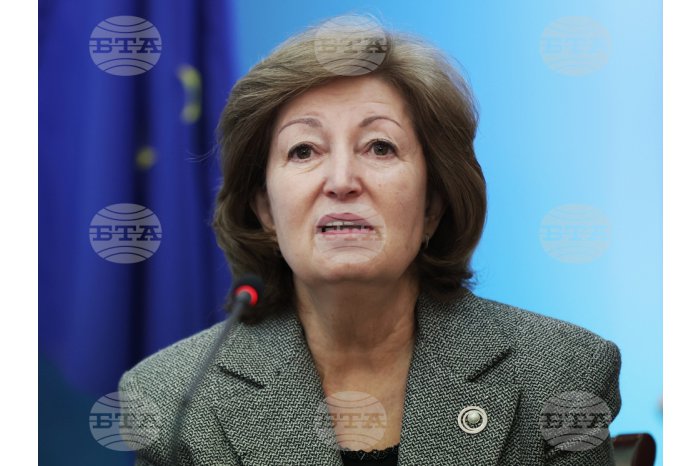Bulgaria Short of 40,000 Nurses, 1/3 of 400 Graduates Directly Go Abroad Every Year
14:18 | 12.05.2023 Category: International
Sofia, 12 mai. /MOLDPRES/. About 40,000 nurses do not suffice in Bulgaria, and 700 graduate per year, of which a third immediately leave the country, said chairwoman of the Bulgarian Association of Healthcare Professionals Milka Vassileva on Friday.
There are 24,281 nurses in Bulgaria of an average age of 53 years. 36% of them are under 45. The younger the nurses, the better it is for them and for the healthcare system, because the work is hard, mentally and physically tiring, Vassileva said, adding that staffing is declining, while new hospitals are being built. She said that in order to attract young people to train for such a noble profession, they must be respected, work standards must be met, their pay and working conditions must be good. Many studies prove that where there are enough nurses with the necessary qualifications, the mortality rate is lower, Vassileva stressed.
Nurses in Bulgaria
According to the latest data, there are less than 25,000 nurses in Bulgaria. Vassileva believes that another 30,000 are needed to provide the necessary services to patients and for the system to be stable. An additional 10,000 nurses are needed to support general practitioners, medical centres, schools, kindergartens and nurseries. "For years we have been expressing our concern about the situation", the chairwoman said. She highlighted that one of the measures is to increase the number of places for students in medical universities and healthcare faculties.
Is there any point in increasing the number of students if there is no interest
Vassileva explained that the increase in the number of student places is logical if there is certainty that there will be people willing to study nursing. She elaborated that the nursing shortage problem is a global one, and various international organizations are urging governments to invest in healthcare, to adopt staff retention policies, to have better pay and better working conditions for nurses so that the existing staff potential is maintained alongside the interest in the profession. "The profession is very difficult, and society associates the nurse with a syringe, but this profession is autonomous, with extremely serious training, the demands on it are huge, alongside the responsibility", Vassileva noted.
The Nurse and Number of Patients
According to a study by the International Council of Nurses, increasing the number of nurses by 1 per 10 beds has been shown to reduce mortality from stroke and cardiovascular accidents in the first 30 days by 11-28 %, and by 8-12 % up to one year after the accident. The Council is concerned that Europe is expected to have a shortage of 9 million nurses by 2030. During the COVID-19 pandemic, a significant proportion of nurses, particularly in Western countries, left the profession permanently. In Bulgaria, that is not the case, but nurses of retirement age with chronic illnesses left, which was normal. In some countries, elective operations are now being postponed because of a lack of teams with enough nurses.
The standards for patient care by one nurse depend on the medical institution - university hospital, municipal hospital, pre-treatment hospital - but, on average, one nurse has to serve seven patients. Vassileva stressed that in Bulgaria one nurse attends to 30 or more patients and in practice Bulgarian nurses save the healthcare system at their own expense.
Nurse Wages
Milka Vassileva stressed that her Association demands that a nurse's starting salary should be three minimum wages and said that the Trade Union of Bulgarian Medical Specialists agreed on two minimum wages as a more viable action. "A minimum of BGN 1,500 should be the starting salary according to the Collective Labour Agreement, but this is not met in all medical institutions", Vassileva said, adding that the starting salary abroad is significantly higher. "In order to be fulfilled in her job, a nurse should not work more than 12 hours per shift, after which she must have a day off, but this happens very rarely in Bulgaria", she noted.
Willingness of young people
"It is not only the pay that is the problem for the lack of willing young people to work as a nurse, although it is extremely important", Vassileva stressed. "Society needs to be told what a nurse, midwife, X-ray technician, etc. means, because people only realise this when they have a health problem. There is no respect for us as people and as professionals, and young people will not tolerate this attitude. So we try to show the nobility of the profession. In order to work in this profession, you have to "have a heart", you have to have an inner need to help people so that, using your professional training, you can take care of the patient in the best way", Vassileva pointed out.
Twenty years
"For 20 years we have regulated the healthcare professions and now there is a Law on the Professional Organization, a National Electronic Professional Register, Rules of Good Medical Practice, a Code of Professional Ethics, working professional advisory boards", said the chairwoman. She added that the past 20 years have not been in vain, but due to frequent government changes, the Association of Healthcare Professionals often had to start all over.
Next week, a roundtable on the topic "20 years later - will our healthcare system crash because of a lack of healthcare professionals, is there still time for a solution?" is to be held, in which politicians are also invited to participate.
Photo: BTA

